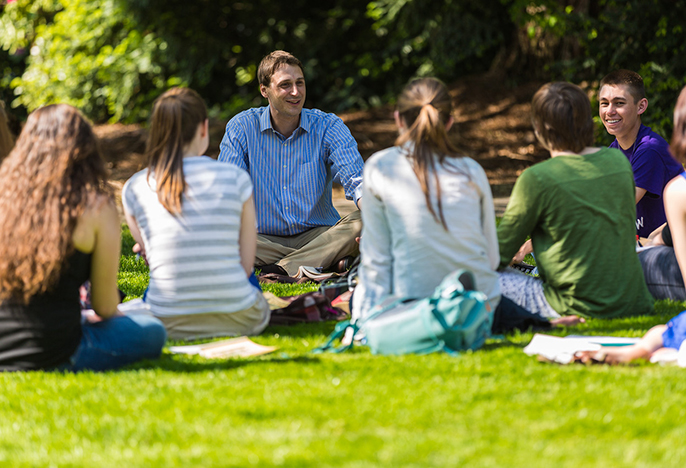P-12 Teacher Resources
The STEM Education and Outreach Center is here to support you in your educational endeavors. On this page you'll find educational resources, articles, opportunities for STEM competitions, research grants, and professional development opportunities!

Teaching Resources
- HomeAdvisor guide for real world math holds a plethora of resources and over 100 lesson plans that help teach students of any age.
- Oregon Connections is an online tool to connect STEM experts to educators via requests such as visits to the classroom or helping with student projects. Create your Oregon Connections account.
- PBS Learning has a wonderful Curious George STEM Learning lesson plan for teaching young students the basics of science, technology, engineering, and math.
- Salmon Watch: A paper on how to work with Salmon Watch on teaching your students difficult concepts by making them more attainable.
- Registration is now open for POGIL’s 2018 3-day workshops! Designed for both those with and without experience with POGIL’s workshops, these workshops focus on restructuring your classroom and aiding teachers in learning about inquiry-based learning and facilitating teamwork. Check out some of the content in their previous workshops!
- Teachers on the Leading Edge: CEETEP is a follow-on project to the Teachers on the Leading Edge (TOTLE) – EarthScope Program
- QUBES is a community of math and biology educators who share resources and methods for preparing students to tackle real, complex, biological problems. Explore their educational resources and services on their website.
- Full STEAM Ahead, created by Concordia University-Portland, offers both STEAM and STEM education resources and projects for educators. They feature possible education grants, a list of articles regarding STEAM education, opportunities for professional development, and many other resources for incorporating STEAM education into your classroom. You can learn more about what STEAM is and explore Concordia University-Portland's resources on their website.
- STEM Study's website provides resources for teachers helping students who want to pursue a degree in STEM. It includes information on jobs and opportunities within STEM and it contains a quiz about finding one's passion within STEM for students who may be undecided.
Articles
- Changing the Curve: Women in Computing. This article explores the history and influence of women in computer science, looking at some of the field's key figures and then reviewing some statistics on how women's representation in technical fields has evolved over the last several decades.
STEM-Based Competitions
- ExploraVision is holding its yearly STEM based competition with applications due by February 8. Check out their eflyer for more details!
Research
- PBS Emperor Science Award is chance for 100 high school students to work on the future of cancer research by teaming up with a university level scientist. Apply before November 1st.
- Toshiba has grants for grades 6-12 in two categories: Less than $5,000 grants are accepted on a rolling basis, while grants of $5,000 or more are accepted and reviewed twice a year on August 1st and February 1st. These grants are meant to fund projects which provide students with opportunities to “Do Science” that promise to increase increase engagement with the subject matter and improve their learning. Before submitting a completed proposal, teachers are welcome to call the Toshiba America Foundation 212.596.0620 in order to discuss their project ideas
Professional Development Opportunities
- Earth Science PD Opportunity: The University of Portland STEM Education and Outreach Center is offering a self-paced on-line professional development opportunity! Bob Butler, UP professor emeritus, has developed a course entitled Cascadia Earthquake Education. The course is organized into four modules which introduce plate tectonics and earthquakes and then connect this general knowledge specifically with Cascadia earthquakes and tsunamis. Within each chapter, a video lecture (or series of video lectures) introduces the topic, along with additional video lectures and animations. Most chapters contain lesson plans for classroom activities and demonstrations. These lesson plans were designed for middle school students but can be adapted to elementary and high school levels. Each lesson plan specifies the Next Generation Science Standards addressed. Most lesson plans have an accompanying set of supporting resources such as student worksheets and answer keys. It is estimated that it will take about 28 hours to complete the course, so successful completion of the course will result in your receiving a certificate for 28 PDUs. If you have an interest and would like to register for the course, please send your preferred email to Bob Butler butler@up.edu. You will then receive information on how to access this free on-line course!

